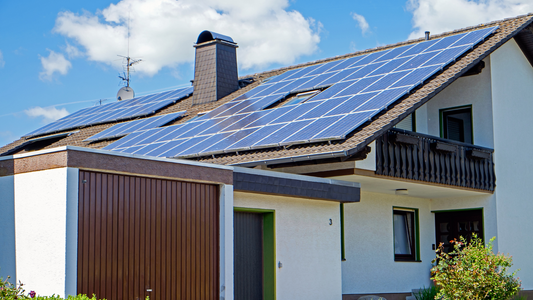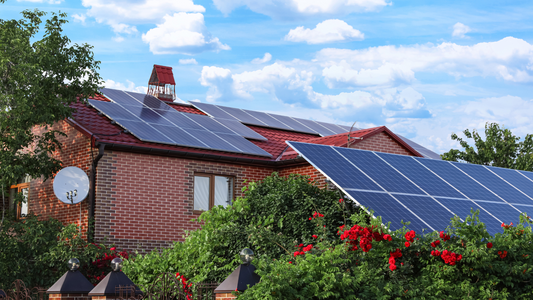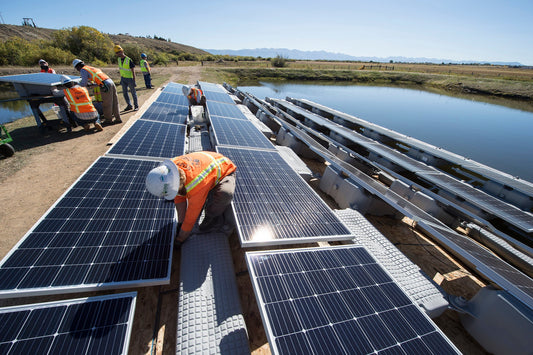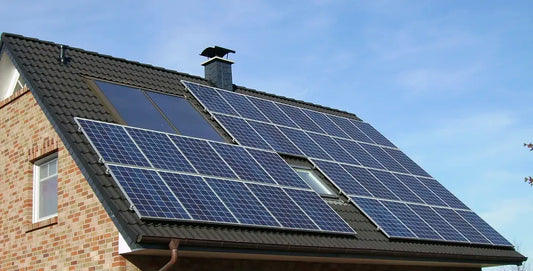
Photovoltaics in agriculture – funding opportunities for agricultural businesses
Photovoltaics is not only an attractive way for homeowners to generate sustainable and cost-efficient energy. Photovoltaic systems also offer enormous benefits for agricultural businesses. Special funding programs and government subsidies make investing in solar energy particularly worthwhile for agricultural businesses. In this blog, we take a look at the funding opportunities for photovoltaics in agriculture and how farmers can benefit from them.
1. Agri-photovoltaics – dual use of land
So-called agri-photovoltaics allows farmers to use arable land for both crop cultivation and electricity generation. This technology combines agricultural and energy use by installing photovoltaic systems over fields that capture solar energy without affecting agricultural production. In many cases, yields can even be improved because the plants are protected from strong sunlight and heat stress.
2. Funding programs for agricultural photovoltaic systems
There are numerous funding options specifically tailored to agricultural businesses. The federal and state governments offer various grants and low-interest loans for the construction of PV systems on agricultural land and buildings. Combinations with other sustainable technologies, such as irrigation systems or stable ventilation, are also supported.
One example is the "Energy from the Countryside" funding program, which is offered in several German states. It provides financial support to farmers for the construction of solar systems on the roofs of stables and other agricultural buildings.
3. Investment grants and tax advantages
In addition to regional subsidies, agricultural businesses can also benefit from general tax relief. The VAT exemption for PV systems up to 30 kWp also applies to agricultural businesses. This exemption eliminates the 19% VAT on purchase and installation, significantly reducing investment costs.
4. Combination of PV systems and battery storage
Many agricultural businesses require large amounts of electricity, especially during peak times. By combining PV systems with battery storage, the generated solar power can be used even when the sun isn't shining. KfW Bank offers attractive subsidized loans to finance such storage solutions, which maximize self-consumption of electricity and reduce energy costs in the long term.
Conclusion
Photovoltaics in agriculture offers an excellent opportunity to reduce operating costs while contributing to the energy transition. With numerous funding programs, subsidies, and tax advantages, investing in a photovoltaic system for agricultural businesses becomes a financially attractive and sustainable decision. Take advantage of the opportunities offered by government funding and modern technologies to secure your farm's energy supply and become more independent from the public grid.




